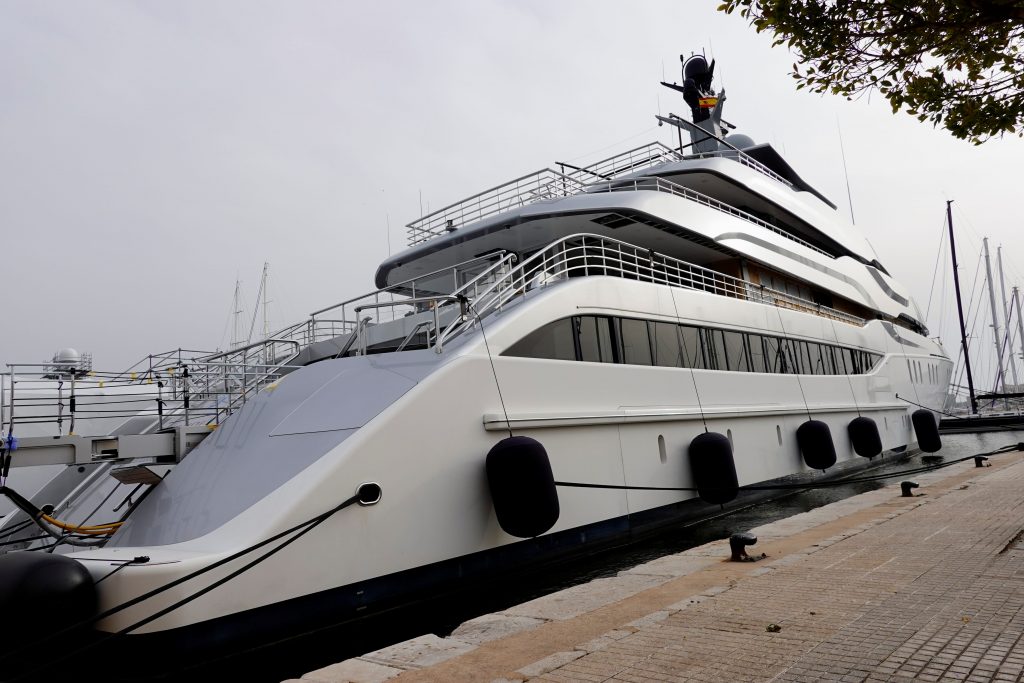- A Russian oligarch's seized yacht may be sold at auction if the US deems it too expensive to maintain, The Daily Beast said.
- It reported an ex-federal prosecutor saying the oligarch can't stop the government from selling the yacht at fair market value.
- Running costs for superyachts can be up to 20% of their overall value, an expert told Insider.
The US government could sell a Russian oligarch's seized superyacht at auction if running costs become too expensive, The Daily Beast reported.
Tango, a 255-foot long luxury vessel worth $90 million, was seized in early April by the US in Spain. The US Department of Justice (DOJ) said in a press release the owner was Viktor Vekselberg, a sanctioned oligarch in charge of Russian conglomerate Renova Group.
Many Russian-owned yachts that were seized after the country's invasion of Ukraine are now in limbo as Western authorities decide what the next steps are. Without proper care, the vessels could deteriorate within weeks and become an environmental hazard, experts previously told Insider.
"If the maintenance and storage become prohibitively expensive, the government can go to the court and say, 'we want to sell this and reduce it to cash,'" Stefan Cassella, former federal prosecutor and expert on asset seizures and money laundering law, told The Daily Beast.
The government is responsible for the running and storage costs of any yacht it detains, until it gets sold on, Cassella told The Daily Beast, adding that seizure cases can last between five and 10 years.
Cassella told The Daily Beast that Vekselberg couldn't stop the government from selling Tango at auction for "fair market value and turning it into a liquid asset."
The annual maintenance costs of yachts can add up to around 15% to 20% of its overall value, Benjamin Maltby, a partner at Keystone Law who specializes in superyachts, previously told Insider. That means Vekselberg's superyacht could cost up to $18 million per year to keep running.
Tango can accommodate 14 guests and 22 crew, according to Super Yacht Fan.
Dit artikel is oorspronkelijk verschenen op z24.nl

